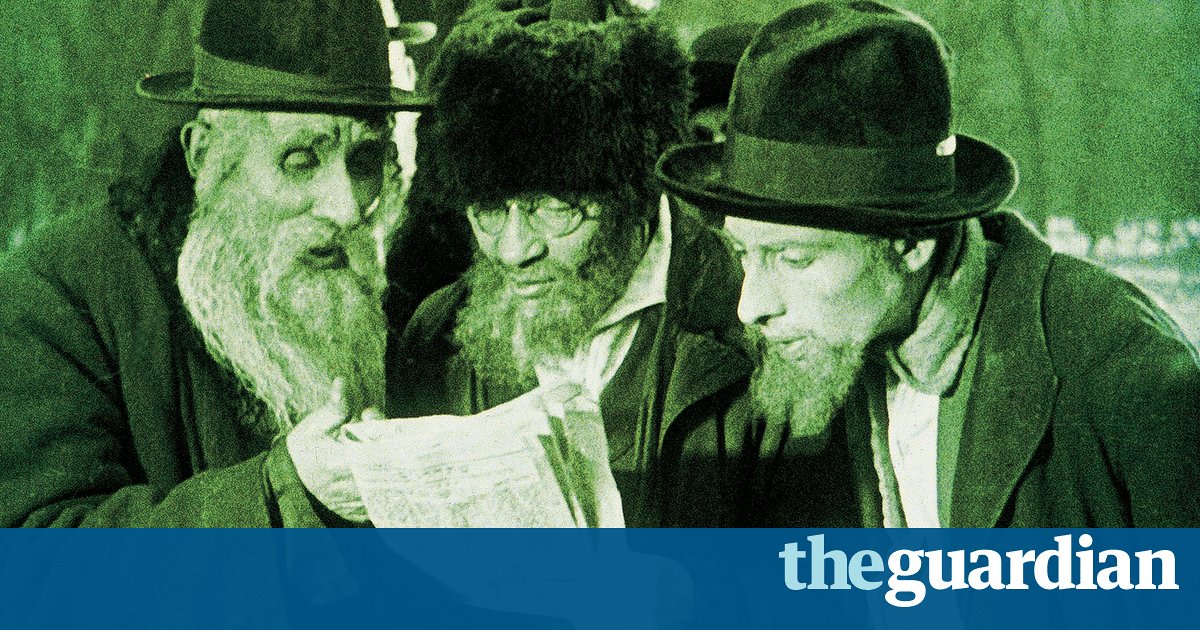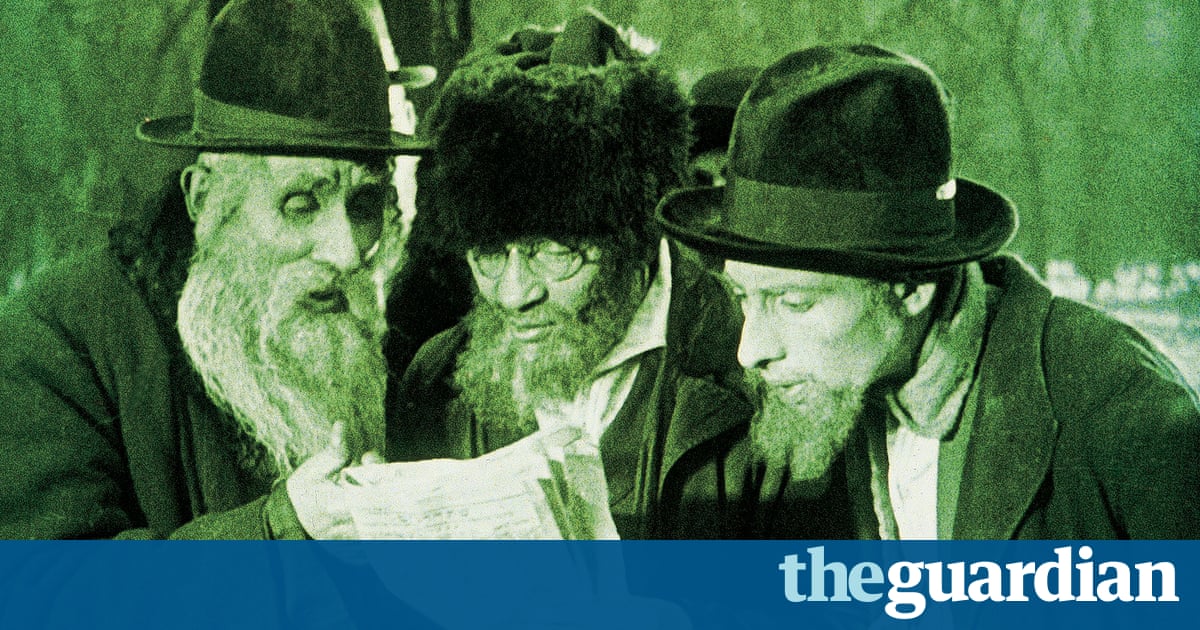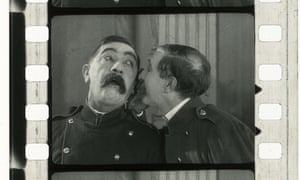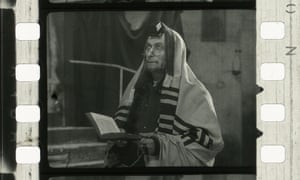‘Lost’ Austrian film predicting rise of nazism restored and relaunched

City Without Jews premiered in Vienna in 1924. Now the original version, lost for 90 years, has been saved from decay

It is the end of the first world war, inflation is soaring and the inhabitants of a German-speaking city are starting to turn on each other. Politicians are quick to find a scapegoat: The people, the chancellor announces, demand the expulsion of all Jews.
What may sound like a snippet from a history book about the Third Reich is in fact the synopsis of a film produced at a time when the Nazi party was still banned and Adolf Hitler was putting the finishing touches to Mein Kampf in a Bavarian prison cell.
Based on a dystopian novel by the Jewish publicist Hugo Bettauer, Die Stadt ohne Juden (The City Without Jews) originally premiered in Vienna in July 1924, but the original version vanished in the war years and was considered lost for more than 90 years.
Now, thanks to a chance discovery in a Parisian flea market and the biggest crowdfunding campaign to date in Austrias culture sector, the silent film is set to be digitally restored and re-released in its original form for the first time, with a premiere including a new live score scheduled at Viennas concert hall for autumn 2017.

The Austrian Film Archive, which organised the crowdfunding campaign, managed to reach its target of 75,500 on Tuesday, four days before Saturdays deadline. A spokesperson for the organisation said a major donation from an anonymous Jewish foundation in the US after Donald Trumps election victory and a doubling of daily donations after the defeat of a rightwing populist candidate in the Austrian presidential election had boosted its cause.
The film shows not just the economic circumstances that led to a flaring up of political antisemitism, but also satirically plays through the consequences of a rapid exodus of the Jewish population of Vienna, called Utopia in the film.
Initially, the citys Aryan population celebrate the departure of their Jewish neighbours with fireworks. But Utopias cultural life soon falls into neglect: cafes turn into beer halls, shops sell basic folk costumes rather than urban fashion, and foreign countries cut off their trade links.
Strangely, one political adviser tells the mayor, our currency is still worth absolutely nothing. Soon, posters start appearing around the city: Youve thrown out our prosperity with the Jews.
A damaged and incomplete version of the film, possibly censored or self-censored, had been discovered by archivists at the Dutch film museum in 1991. According to Nikolaus Wostry, director of collections at the Austrian Film Archive, the new edit which was found by a collector at a Paris flea market in October 2015 not only politicises the films message and contains its original ending but also adds a number of detailed scenes exploring the different social spheres of Jewish life in Vienna.

The message we want to send out is that this is not just a film about the past, but an anti-Nazi statement, Wostry told the Guardian.
Back when The City Without Jews was made, we had a very similar situation to the one we are in now. At the end of the first world war, a lot of people had been displaced by Russian forces in the north of the empire and were migrating south to Vienna, especially Jews from Bukovina and Galicia. Antisemitic feelings got a massive boost through this refugee crisis and all parties started to make politics with it.
After the second world war, when Austria had to redefine itself as a nation, Jewish Vienna played an important part. Wostry said: We became the nation of Schnitzler, Freud and Schnberg. But Austria never actually tried to bring back Jews that were driven out. Theres a great paradox at the heart of this nation.
In the film, Utopias fictional chancellor eventually decides to invite the Jewish population back into the city. Real life did not offer such a happy ending. Oskar Helmer, Austrias postwar interior minister, did little to hide his belief that questions over reparation payments and restitution of Jewish property should be drawn out as long as possible.
Bettauer, the author of the novel that inspired the film, was assassinated in his office by an ex-member of the then banned Nazi party only months after the films premiere.
History also had in store a number of cruel twists for the films lead actors. Johannes Riemann, who plays the films Jewish protagonist, Leo Strakosch, later joined the Nazi party and in 1944 performed at a variety evening at the Auschwitz concentration camp, while star actor Hans Moser, who plays one of the films most rabid antisemites, had to emigrate from Austria because he refused to divorce his Jewish wife.